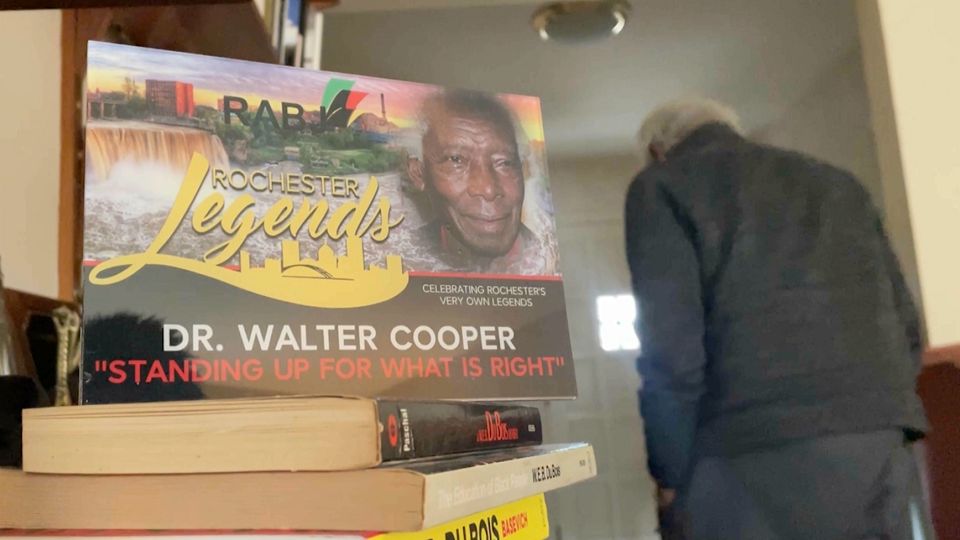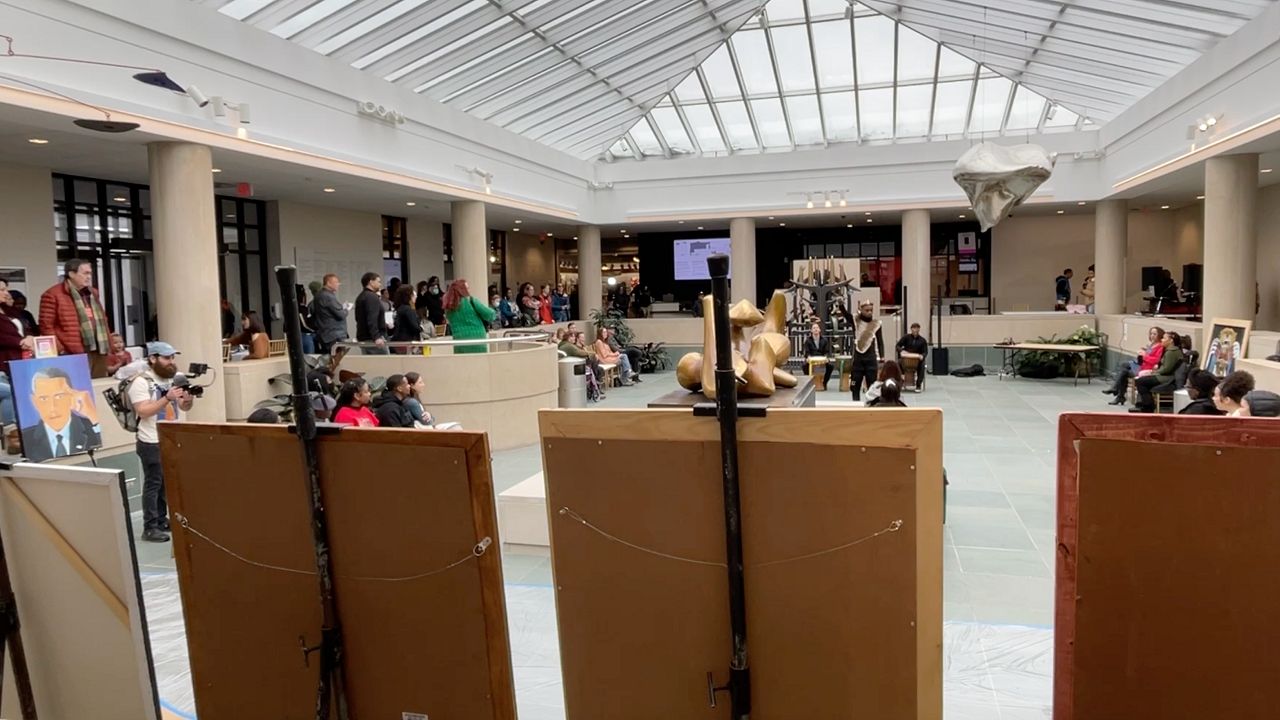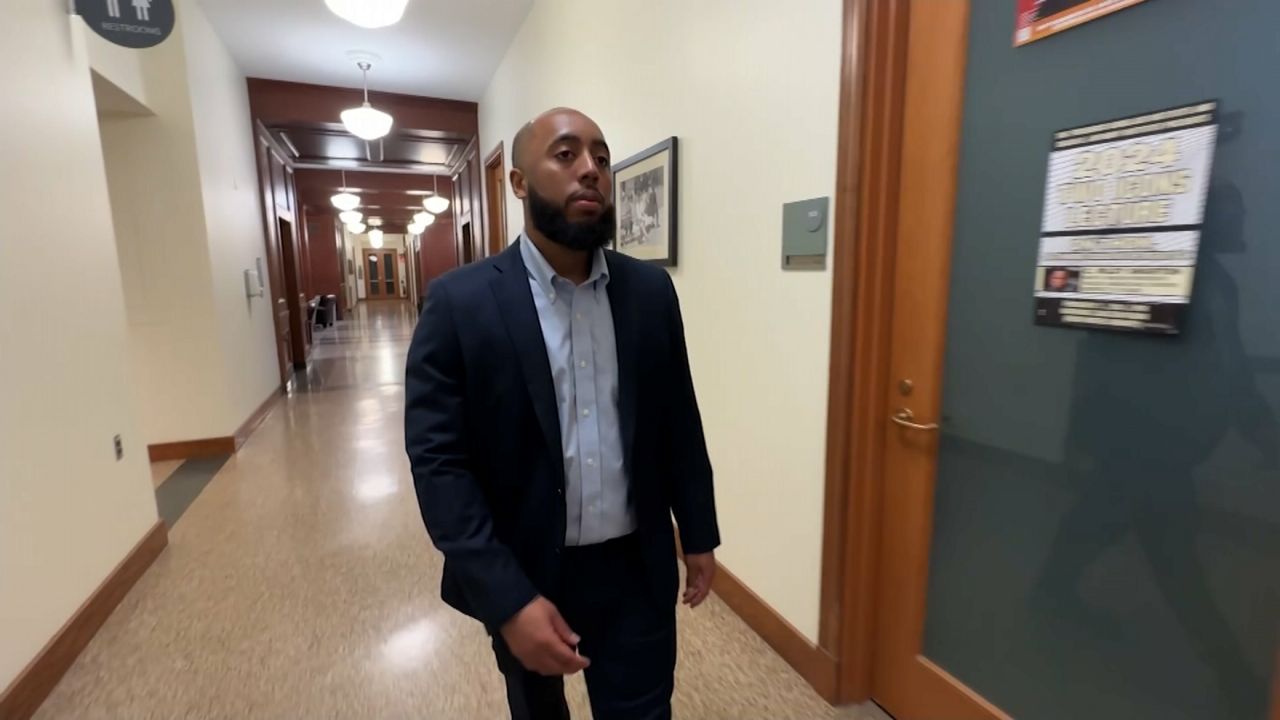CALEDONIA, N.Y. — On the second floor of the Big Springs Museum in Caledonia sits the Shelton family history.
“There’s so many, so many memories,” said 91-year-old Marjorie Shelton Carpenter.
It’s home to pictures and stories of her family’s journey to build roots in upstate New York.
“That’s my brother way at the top. And my mother and my sister, Betty, my youngest sister there, and my parents, John and Alma Shelton,” Carpenter showed. “My mother was from Suffolk, Virginia. That's where the peanut [is], in Suffolk. My father was from Blackstone, Va. That was Camp Pickett, Va., the old army place.”
The Shelton family was one of the more than 20 families who heard of potential work up north shortly after the Civil War and made their way to Caledonia, all the way from Culpeper, Va. Carpenter’s family followed her Aunt Independence, who she remembers as Aunt Penny, married to Uncle Henry.
Four generations later, 15 of those families remain in the little town of Caledonia, which her brother always referred to as “Cal-City.” That’s why her family is among the others to be remembered in a permanent exhibit called "A Heritage Shared: African-American Families of Caledonia and Mumford" at the museum.
The exhibit has been on display since 1999, but there’s a new interactive addition on display thanks to some help from the Genesee Valley Council on the Arts and The Walters Creative Co.
“This is nice,” Carpenter said.
The new portion of the exhibit is on the first floor of the museum and it gives the public an opportunity to meet the families. It shared interview clips answering all sorts of questions, such as:
- Why stay in Caledonia?
- What do you wish for the future of their hometown?
- What moment in their life do they wish they had a photograph of?
“You know what I’m going to press?” Carpenter asked. “Have you ever experienced racism?”
Carpenter’s video explained that she first experienced racism in Washington, D.C., on a trip when she was 18 years old. She felt lucky to stay in a hotel and watched the restaurant from her room’s window to see if any Black people went in, because she said she didn’t want to be embarrassed if she entered and wasn’t welcomed.
Carpenter explained she saw a Black person go in, so she went a few minutes later. When she arrived, the hostess, who she remembered as a nice-looking young girl, said she could buy food there, but she wasn’t welcome to stay and eat it.
Carpenter’s second video on display shared her most recent encounter with racism at 89 years old in her hometown of Caledonia. She says she was embarrassed for herself, her town and the parents of the young man whom she saw driving into town with a Confederate flag, screaming profane words.
“You don’t do that to people. You just don’t do it,” Carpenter explained. “But you know, you learn something new every day, they tell ya. Don’t ever think that you know everything is so hunky-dory around you because you’re going to be disappointed."
In her 91 years, generations have grown, stories have been shared and history has been made, but she said one thing hasn’t changed: “I’m Black and I’m proud. And I’ll tell everybody. Wouldn’t be anything else. This is the way God made me,” she said.









